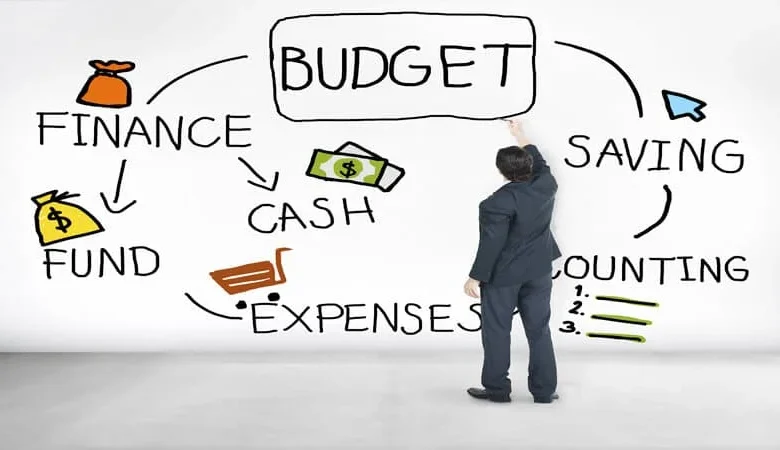What is Budgeting Planning? A Complete Guide to Financial Success

One of the key components of personal finance management is budgeting planning. As things seem to serve better to eliminate debt, to save for a big purchase or simply to have more control over your finances, Creating a budget is important and it should be thoughtful as well as realistic. In this article, we will discuss what exactly budgeting planning is, why it matters, and how you can lay down the groundwork toward becoming financially successful.
What is Budgeting Planning?
You prepare a structured way to manage your income and expenses for a specific period(limit is usually a month). Spending is when you make sure that you don’t overspend and can put away funds for future goals by dividing your income into various categories housing, groceries, transportation, savings, entertainment, etc.
A budget is just necessary because it keeps your finances in check; you can see where your money is going and can also ensure that your wants, needs, and financial goals are prioritized. The goal is to stay balanced with your income and expenses without going into insurmountable debt.
What is Operational Budget Planning?
A solid budget plan, a result of budgeting, should give you a sense of clarity and control over your finances. Without one, it’s easy to let your money slip through your fingers and not hit your financial targets. Lets look at the top reasons why budgeting is important:
- Stops You From Overspending: Being on a budget allows you to see how much money you have going out each month and prevents impulse spending. This allows you to live within your means and control your spending.
- Achieving Financial Goals: Be in a position to save for a down payment on a house, establish an emergency fund, or pay off debt; budgeting is the first step in reaching your financial goals. It guarantees that you’re always saving for the things that are most important.
- Lowers Financial Stress: A good budget gives you comfort knowing exactly where your money is being spent. It saves you from unpleasant surprises, and allows you to plan for emergencies more easily.
- Promotes Financial Awareness: Budgeting makes you aware of your spending habits and increases awareness about finances. Making smarter decisions and helping you increase your savings by identifying where you can scale back.
- Enhances Creditworthiness: Budgeting helps you to be able to control debt repayment which ultimately raises your credit score. Consistently being able to pay your bills on time also makes it easier to get loans in the future, and to do so at better rates.
How to Create a Budget Plan
Budgeting might sound like a daunting task but it is a straightforward journey when you take it step by step. Here’s how to make a solid budget:
Determine Your Income
It all begins with understanding your monthly income. This can be your paycheck, side hustles, freelance projects, or passive income. Also consider any fluctuations in income, such as seasonality or raises.
List Your Expenses
Break your costs into fixed and variable:
- Fixed Expenses: Rent or mortgage, utilities, car payments and insurance — costs that don’t change month to month.
- Variable Expenses: These will vary month to month, like groceries, entertainment, eating out, and personal purchases.
Track Your Spending
Keep track of where every dollar goes for at least a month, using a notebook, spreadsheet or budgeting app. Doing this illuminates where your cash is heading and what action needs to be taken. Many apps, like Mint or YNAB (You Need a Budget), can track and categorize your spending automatically.
Set Financial Goals
Define your short-term and long-term financial goals. For example:
- Example of short-term goal: A saving goal of $500 in three months for a vacation.
- Long-term meaning: Saving for retirement or paying off a student loan.
Your budget should be aligned with those goals as funds should be allocated to achieve them.
Create Spending Limits
With your income, write down how much you will spend on each expense category. This is where the 50/30/20 rule comes into play:
- Needs: 50% of your income (i.e.: rent; utilities; grocery items).
- 30% to desires (e.g., dining out, entertainment)
- 20% to be saved or put toward debt repayment.
Keep Track of and Modify Your Budget
A budget is not set in stone. Things happen in life, and so your income may increase, or your expenses may change. Review your budget, at minimum, once a month and revisit it, if needed, to help you stay on track.
Types of Budgeting Methods
One budgeting method doesn’t fit all. The best one for you depends on your financial habits and goals. Here are some common budgeting methods:
- Zero-Based Budgeting (ZBB): This method has every dollar with a job. Every dollar white (dollar in, dollar out) − under this commandment, every cent of your income, a dollar is assigned to an expense or savings category, income minus expenses must equal zero.
- 50/30/20 Rule: This is an earlier mentioned rule that divides your income into three parts: 50% for needs, 30% for wants, and 20% for savings or debt repayment This is a straightforward approach for people who seek an easy and efficient way to colloid their funds.
- Envelopes Method: This strategy is ideal for individuals who have trouble with overspending. You put cash into envelopes for specific spending categories (food, entertainment, etc.) either physically or digitally. When the envelope is empty, no additional spending in that category is permitted for the month.
- Pay Yourself First: This is where you allocate a percentage of your income to savings and investments before spending on anything else. This keeps you in the habit of growing your wealth.
Budgeting Tips for Success
- Pay Yourself First: Just as you pay small bills to continue living life, invest money in yourself. This means that you save first before you spend.
- Budgeting Apps: Use apps such as Mint, YNAB, and PocketGuard to help you keep a track of your spending, create budgets, and organize your finances They link to your bank accounts and credit cards, updating automatically on your spending.
- Eliminate Waste: Regularly review your variable expenses to see which ones you can eliminate. Perhaps you can get by without that subscription service, or cook more at home as opposed to going out to eat.
- Establish an Emergency Fund: Aim to save at least three to six months’ worth of living expenses in an emergency fund. This will provide a safety net in the event of unplanned expenses such as medical bills or auto repairs.
Conclusion
However, the best budgeting planning is an essential step when anyone wants to have the financial success. It helps you outline your income and spending in a more organized way and can help you save gradually. Start budgeting by creating a regular habit of budgeting and streamlining the process with modern solutions to take control of your future and reduce stress associated with money management.
Are you prepared to master your finances? Have a budgeting plan, get started today and let your finances bloom. Let your friends and family know about this guide for achieving financial freedom!




